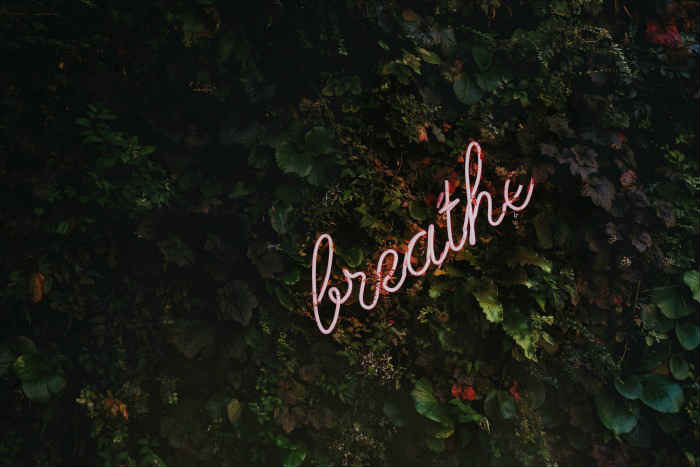Are you aware of your breath?
Did you know that the way we breathe holds tremendous power to impact our entire nervous system? We have an incredible, often underutilised, tool at our disposal so let’s explore together why breathing matters.
To understand why our breathing matters, we need to get a little technical. Put simply, the functions of our body are controlled by our Autonomic Nervous System. This system is made up of two branches – the sympathetic nervous system (SNS) and the parasympathetic nervous system (PNS).
We could call the SNS our fight or flight centre, whereas the PNS is our rest and restore centre. The SNS is our more primitive centre; it is geared to alert and prepare us for danger. When triggered it releases adrenalin into our system, increasing our heart rate and blood pressure, preparing us for action. In this state our body burns sugar rather than fat to supply a quick boost of energy, blood is redirected away from our digestive tract and there are lower levels of progesterone present (which just happens to be a rather important calming, anti-anxiety hormone).
Now, if we are about to be attacked, this process is essential; it is equipping us to do whatever is needed to survive. The problem is that the SNS can be activated when it is not a matter of survival and the way we breath can be a trigger. You may be feeling anxious in a situation and your breathing starts to accelerate. Or perhaps you habitually take rapid or shallow breaths. Either way, the SNS receives this as a message of impending danger and goes into action, throwing your entire body into a state of adrenalin fuelled high alert.
Functioning in this state not only keeps us in levels of high stress, it also takes a physical toll; our hormones are thrown out of balance, our digestive system suffers and weight issues can come into play as our body is not effectively burning fat.
What can we do? It’s important to recognise that the fight and flight response is not controlled by our logic. Telling ourselves to ‘calm down’ isn’t going to cut it – the primitive brain doesn’t respond to such logic. What it does respond to, however, is the breath.
This is where the PNS – our rest and restore centre – comes into play. The PNS slows the heart rate, is responsible for tissue repair and brings blood back to the digestive tract. It is our support system, keeping everything regulated so that our body can function healthily. The PNS needs to communicate to the SNS that everything is ok, that there is no danger. The way it does this is through the breath, particularly the exhale. As our breathing slows down and becomes more regulated, our primitive brain gets the message that we are safe and the fight and flight response is switched off. Breathing matters!
It may seem incredible that something as simple as how we breath can have such an impact on our entire system. Can I encourage you to start noticing how you are breathing, particularly in stressful situations. Slowing your breathing down and inhaling from lower in your diaphragm and belly rather than high in your chest will help to keep your system in balance. It’s keeping the PNS in charge. The situation itself may not change, but how you experience it physically may allow you to remain in it very differently.
Develop a daily practice of breathing with awareness. I offer a free mp3 Focusing on the Breath for new subscribers to my blog The She Room; click here and scroll to the bottom of the page to sign up. This exercise will help get you started on connecting your body and your breath.
If you are interested in exploring in more depth the physical impact of stress on our health and hormones, can I recommend Dr Libby Weaver’s book “The Rushing Woman’s Syndrome”. It is an excellent and indeed eye-opening resource – well worth having on your bookshelf.
For more information about the counselling process, or to enquire about accessing my support as a counsellor, please click here.

